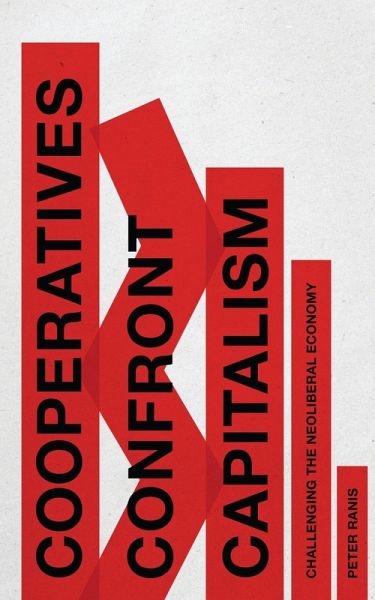Cooperatives the world over are successfully developing alternative models of decision-making, employment and operation without the existence of managers, executives and hierarchies.
Through case studies spanning the US, Latin America and Europe, including valuable new work on the previously neglected cooperative movement in Cuba, Peter Ranis explores how cooperatives have evolved in response to the economic crisis. Going further yet, Ranis makes the novel argument that the constitutionally enshrined principle of 'eminent domain' can in fact be harnessed to create and defend worker cooperatives.
Combining the work of key radical theorists, including Marx, Gramsci and Luxemburg, with that of contemporary political economists, such as Block, Piketty and Stiglitz, Cooperatives Confront Capitalism provides what is perhaps the most far-reaching analysis yet of the ideas, achievements and wider historical context of the cooperative movement.
Through case studies spanning the US, Latin America and Europe, including valuable new work on the previously neglected cooperative movement in Cuba, Peter Ranis explores how cooperatives have evolved in response to the economic crisis. Going further yet, Ranis makes the novel argument that the constitutionally enshrined principle of 'eminent domain' can in fact be harnessed to create and defend worker cooperatives.
Combining the work of key radical theorists, including Marx, Gramsci and Luxemburg, with that of contemporary political economists, such as Block, Piketty and Stiglitz, Cooperatives Confront Capitalism provides what is perhaps the most far-reaching analysis yet of the ideas, achievements and wider historical context of the cooperative movement.
'Provides a compelling overview of the potential for worker cooperatives to become a significant alternative to capitalist enterprises, and an innovative argument for the strategic use of eminent domain as a way of publicly supporting the expansion of a cooperative sector.'
Erik Olin Wright, author of Understanding Class'A comprehensive treatment of both the theory of worker-cooperatives and their recent history. It reflects many years of field research and fully incorporates the most recent literature. This book will be indispensable to ongoing discussions about Left strategy.'
Victor Wallis, managing editor of Socialism and Democracy'A refreshing reprise of the significant accomplishments of worker cooperatives in Latin America over the last two decades. In the aftermath of the Occupy movement, Ranis provides a unique roadmap for students and scholars for the practical application of worker cooperatives today and in the years to come.'
Immanuel Ness, City University o
Erik Olin Wright, author of Understanding Class'A comprehensive treatment of both the theory of worker-cooperatives and their recent history. It reflects many years of field research and fully incorporates the most recent literature. This book will be indispensable to ongoing discussions about Left strategy.'
Victor Wallis, managing editor of Socialism and Democracy'A refreshing reprise of the significant accomplishments of worker cooperatives in Latin America over the last two decades. In the aftermath of the Occupy movement, Ranis provides a unique roadmap for students and scholars for the practical application of worker cooperatives today and in the years to come.'
Immanuel Ness, City University o

